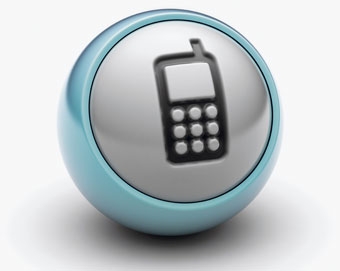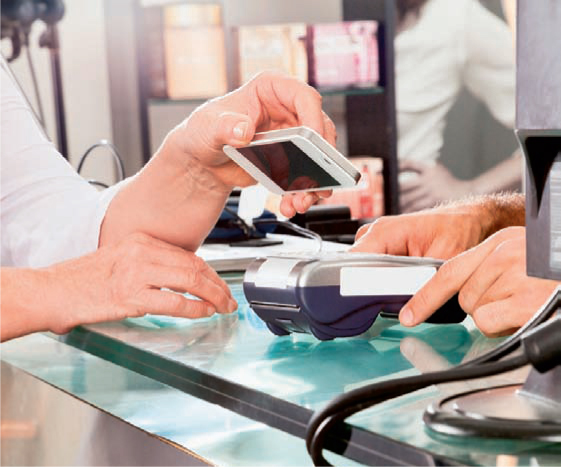 Disruption.
Disruption.
There is the one-word theme of the Money2020 innovation inpayments conference that filled the Aria Hotel's convention centerin Las Vegas in early October.
|About 4,000 new-style payments geeks filled the room andeverywhere the buzz was loud: A new day is dawning in payments andthere will be winners and losers.
|Yet there also was a kind of sobriety, an awareness that thedisruption of the legacy financial services infrastructure istaking longer than many had once believed.
|And that delay gives legacy players – namely credit unions –time to craft strategies aimed at holding onto a meaningful role inthe new payments landscape that definitely is coming.
|Here are five things you don't know about this landscape becauseyou weren't at Money2020:
|Next Page: Mobile Wallet Watch
||
Still Waiting on Mobile Wallets
Call Money2020 the epicenter for mobile wallet true believers,but even here the most common answer given when asked when payingwith a mobile phone at retail would become commonplace was “2020 orlater,” offered by 22% in a flash poll of the audience.
| What is holding broad adoptionback? Pretty much everything. Most phones continue to lackbuilt-in transaction capabilities. Most retailers couldn't processthe transactions anyway (although EMV adoption, if it happens anywhere near scheduled, may changethat in the next few years). And neither customers nor merchantsare in a rush to adopt pay-by-phone tools.
What is holding broad adoptionback? Pretty much everything. Most phones continue to lackbuilt-in transaction capabilities. Most retailers couldn't processthe transactions anyway (although EMV adoption, if it happens anywhere near scheduled, may changethat in the next few years). And neither customers nor merchantsare in a rush to adopt pay-by-phone tools.
But that doesn't mean this is dead. It took a fullgeneration, even longer, for credit cards to move out of a fewaffluent hands into the broad middle class. If anything, the shiftto mobile payments will probably come much faster, predictedmultiple Money2020 experts. But it won't happen overnight.
|As for why the shift is inevitable, mobile phones haveadvantages plastic cards could never have – namely “they are alwaysconnected and always authenticating,” said panelist Deepak Jain,CEO of DeviceFidelity, a Richardson, Texas, developer ofcontactless tools for mobile phones.
|Add in the ability to deliver location-based offers, and phoneswill win. The only question is how soon.
|Next Page: RIP Branch Banking
|Branch Banking is Dead
So pronounced three of four panelists at Money2020 and thefourth, Steve Streit, CEO of Green Dot, the prepaid card company which ownsGoBank, offered at best a tepid endorsement of branch banking'sfuture.
|And he insisted his goal with mobile-focused GoBank, which operates a lone branch in Provo, Utah, is “tomake it all the bank you need.”
|Streit added: “With mobile you always have your branch withyou.”
|Alpesh Chokshi, who runs Bluebird for American Express, offered themetric that underlines why at least some financial servicesvisionaries believe branches will go the way of the dodo.
|“The cost structure of a traditional bank is two and one-halftimes higher than ours,” said Chokshi.
|Next Page: MCX Rising, Isis Falling, NFC onHold
|MCX Rising, Isis Falling,NFC on Hold
 Three big payments initiatives,three different reactions among Money2020 attendees.
Three big payments initiatives,three different reactions among Money2020 attendees.
MCX, the payments platform pushed by big retailers such asWalmart and Sears, seemed to win respect from attendees. That was achange from last year's event where many saw the initiative as atool Walmart in particular was using to attempt to win better termsfrom MasterCard and Visa.
|Flash forward to 2013 and the new view on MCX is that theplayers are serious about this and, probably, they will launchpilots within six months. The impact on credit unions may beslight – demand deposit account-based payments apparently will befeatured in MCX.
|It is unclear if MCX will allow payments via MasterCard or Visa. Many think theanswer will be no.
|As for Isis – the tap-and-go mobile phone payment network jointlyowned by Verizon, AT&T and T-Mobile – although CEO Mike Abbottbravely took the Money2020 stage with an optimistic keynote,observers pointed out that Isis offered no concrete timeline for anational rollout and Abbott also offered scant details about thepilots that have run for a year in Salt Lake City and Austin,Texas.
|That lack of detail caused at least some observers to see ableak future for Isis, although others pointed out it remains veryearly days in payments and the big carriers have enough clout toclaim a spot at the negotiating table.
|As for NFC – Near Field Communication – once the darling of the mobilepayments set and now apparently in perpetual hold, indifferenceseems to be today's attitude.
|“We are not seeing any interest,” said Jim Macari, director ofinnovation and product development at Phillips 66. “It's notsurprising,” he shrugged. “There isn't much difference between tapand go and swipe and go.”
|There even were deep divisions on a panel devoted to NFC thatasked the question, “Is the industry on hold?”
|Some panelists said they held to the belief that NFC wouldprevail, while another said it would not prevail in its currentstate, and a third flatly predicted it would never win at point ofsale.
|So call the outlook for NFC as mixed.
|Next Page: Picturing Tomorrow'sBank
|Picturing Tomorrow'sBank
 What distinguished the panel entitled “Tomorrow's Bank”was this irony: Not a single panelist worked at a traditionalfinancial institution (that is, a bank or credit union).
What distinguished the panel entitled “Tomorrow's Bank”was this irony: Not a single panelist worked at a traditionalfinancial institution (that is, a bank or credit union).
“That says a lot about where we are,” said moderator Sam Maule,a consultant with Carlisle & Gallagher.
|And yet “I don't see a fundamental change in banking over thenext 50 years,” said Wade Arnold, CEO of Banno, a data analyticscompany focused on financial institutions. “It will still besavings and lending,” that is, financial institutions will continueto live on the spread between the cost of money taken in and therates won in lending it out.
|Arnold also noted, that in his opinion, cost reduction is a loudmantra in banking today and what this has triggered is a sharp risein self-serve channels.
|Paul Doyle, CEO of VerifyValid, a Grand Rapids, Mich., paymentsinnovator, added that “the elephant in the room is businessbanking. That is where most innovation happens because that iswhere the revenues are for financial institutions.”
|Mark Critchett, marketing director at NCR Corp., added that hesees a lot of innovation at financial institutions, especiallylarge ones. “They need to innovate to maintain their scale.”
|Added Doyle: “Banking in 2020 will look a lot like banking in2013” – meaning, expect changes but know that change evolves at acautious pace in financial services.
|Next Page: Banks in Pole Position But Race NotWon
|For Financial Institutions toLose
 A big era of upheaval lies aheadin financial services.
A big era of upheaval lies aheadin financial services.
Is it time to play taps for community banks and creditunion?
|“There is a lot of conversation, but I think it is unlikelyexisting payments players will go away,” said Bill Ready, CEO ofBraintree, a Chicago payments startup recently acquired by eBay for$800 million in an all-cash deal.
|He added, “There is a lot of innovation on top of the existingrails. It is unlikely we will get rid of existing paymentsnetworks.”
|Kevin Laracey, CEO of Paydiant, a Boston-area developer of mobile wallettechnologies, said on another panel, “I think banks are in the poleposition. Banks are very committed to being innovative. It's abouttrust. If I am trusting my bank, they will be in the poleposition. This doesn't mean they can't fumble this.”
|Other panelists – many – suggested that the time is ripe todisintermediate financial institutions, especially ones that havebeen slow to embrace game-changing technology.
|But, said Laracey, when it comes to the consumer and his or herwallet, what matters is trust – and, right now, they are a lot morelikely to trust the bank or credit union that they dobusiness with already than they are to trust their financialwell-being to a tech titan, no matter how cool and cuttingedge.
|At least for now.
|Also From Money2020:
Isis Still Alive
Death of Branches?
CU Wallet Picks Paydiant
MCXComing at You
NFC On Hold or a Go?
Mobile Needs One-Click Purchasing
Complete your profile to continue reading and get FREE access to CUTimes.com, part of your ALM digital membership.
Your access to unlimited CUTimes.com content isn’t changing.
Once you are an ALM digital member, you’ll receive:
- Critical CUTimes.com information including comprehensive product and service provider listings via the Marketplace Directory, CU Careers, resources from industry leaders, webcasts, and breaking news, analysis and more with our informative Newsletters.
- Exclusive discounts on ALM and CU Times events.
- Access to other award-winning ALM websites including Law.com and GlobeSt.com.
Already have an account? Sign In
© 2024 ALM Global, LLC, All Rights Reserved. Request academic re-use from www.copyright.com. All other uses, submit a request to [email protected]. For more information visit Asset & Logo Licensing.









